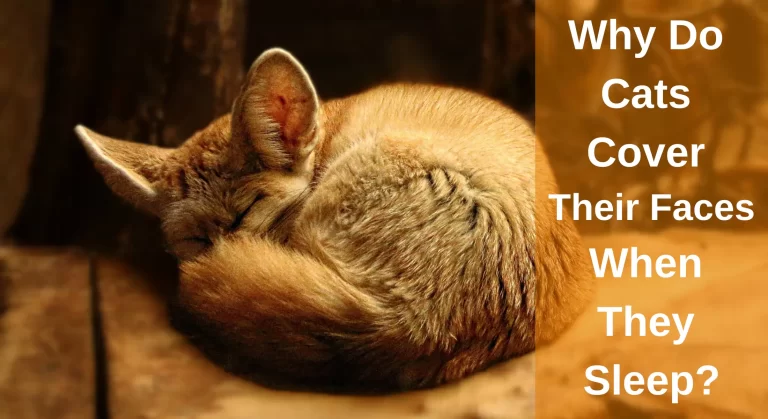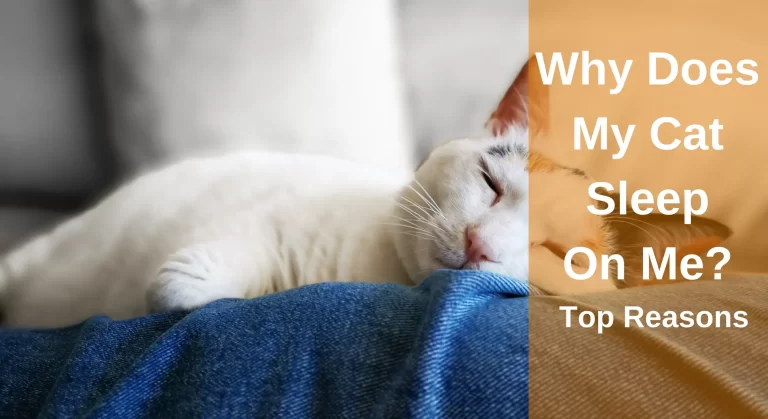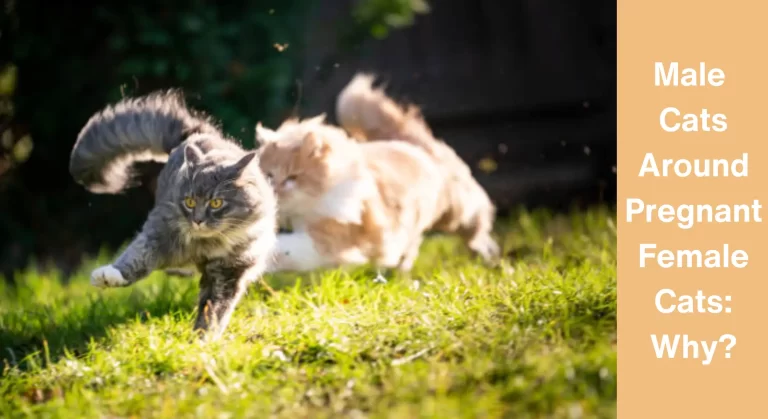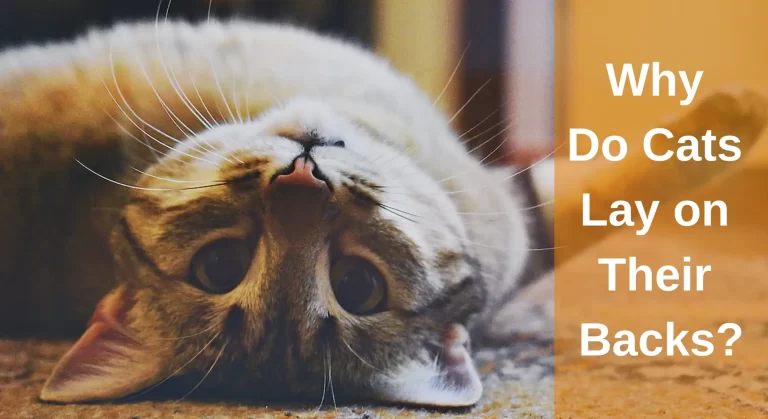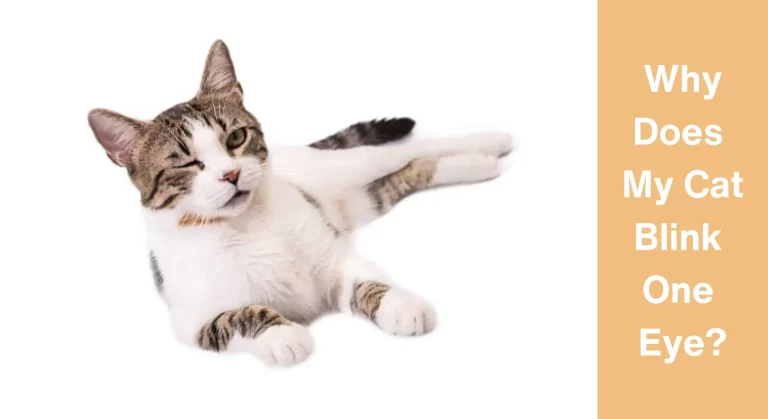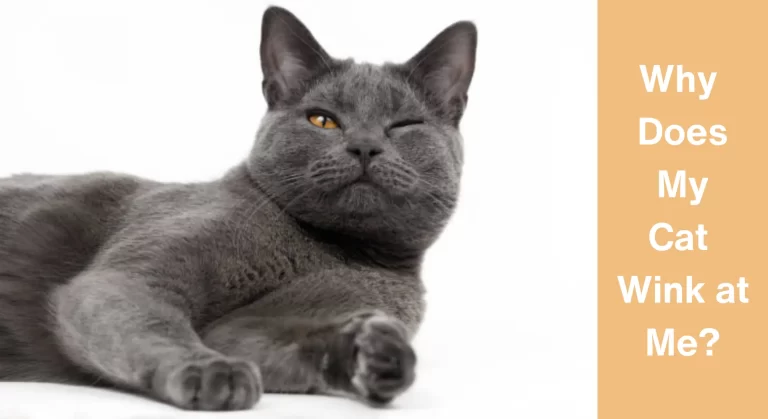Is It Normal for My Cat to Snore? Reasons And Preventions
When tissues present in the upper respiratory tract vibrate, the sound is produced known as snoring. Snoring happens when the upper airway passageways vibrate a lot while you breathe. By relaxing tissues of the upper respiratory tract, snoring occurs. Although it is common in cats, it can sometimes indicate a health problem.
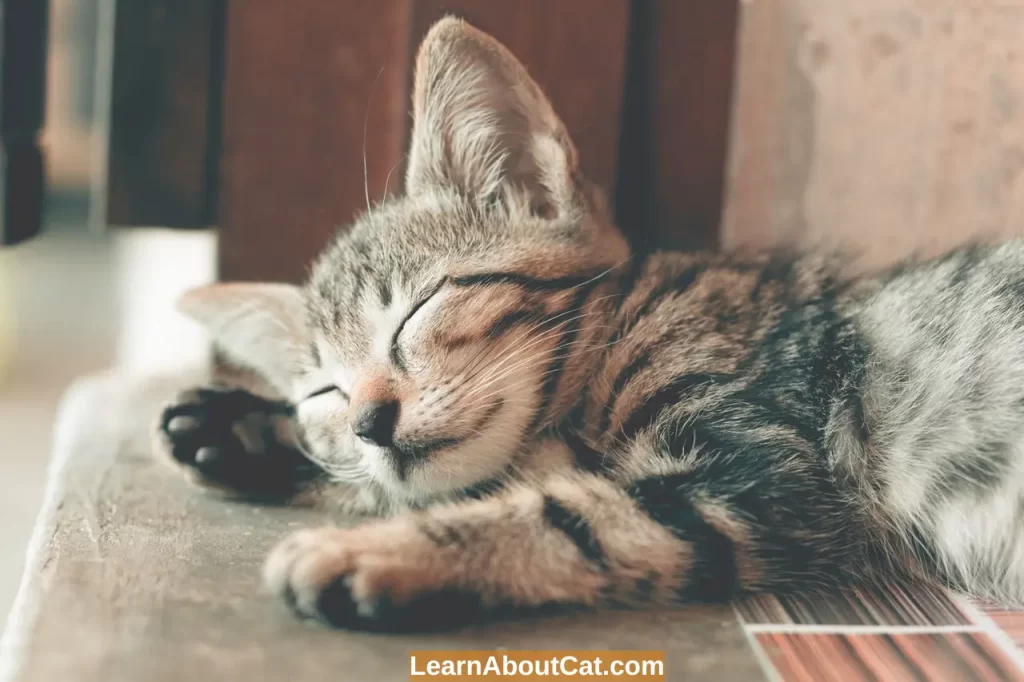
Reason Why Do Cats Snore
The following factors cause your cat to snore:
Overweight
Yes, fat cats are the most attractive, but obesity is a medical condition that can produce a variety of symptoms. Snoring can occur when a cat is overweight because fat puts pressure on its upper respiratory passages.
Cat’s Sleeping Posture
If you own a cat, you know that cats sleep in the most beautiful positions; sometimes seem to be the strangest positions. Some of these unusual and wonderful positions, however, may be the source of their snoring. This is a possible cause if you notice your cat snoring for short periods of time and then stop.
Allergies
If your cat has been snoring for a long time and you can’t think of another reason for the cat’s snoring, allergies might be to blame. Other symptoms include coughing and sneezing. If your cat snores frequently, visit your veterinarian about allergies.
Respiratory Problems
Asthmatic cats have difficulty breathing properly as well. Snoring, wheezing, coughing, and fast breathing will alert you to the fact that something is wrong with them. Allergens lead to inflammation and edema in the feline respiratory system, causing asthma.
Apart from your cat’s difficulty breathing, other symptoms of a respiratory infection include:
- Nasal and ocular discharge that is excessive.
- Coughing and wheezing.
- There is no or little hunger.
The Shape of the Nose
Because their skull bones are shorter, Himalayan, Burmese as well as Persian breeds are known as flat-faced cats. Their nasal cavity is smaller and their airways are shorter due to their unique face form, making breathing via their nostrils more challenging. Unfortunately, brachycephalic cats snore a lot.
Obstruction
Another cause of your pet’s snoring might be a blocked respiratory tube. Even grass may get into their noses and hinder them from breathing properly.
Illness
Snoring is caused by nasal channel obstruction and heavy breathing from colds. If you notice your pet is lethargic, constantly sleeping, snoring, and refusing to eat, she may be suffering from a cold. Fortunately, this is treatable, and the snoring will cease after the cold has subsided.
When Does Cat Snoring Become Unusual?
If your cat has always snored, he is most likely fine. If, on the other hand, the snoring occurs suddenly or is accompanied by other behavioural changes, it is time to make that decision. Apart from a sudden beginning of snoring, owners should keep an eye out for signs of interrupted breathing when the cat is awake.
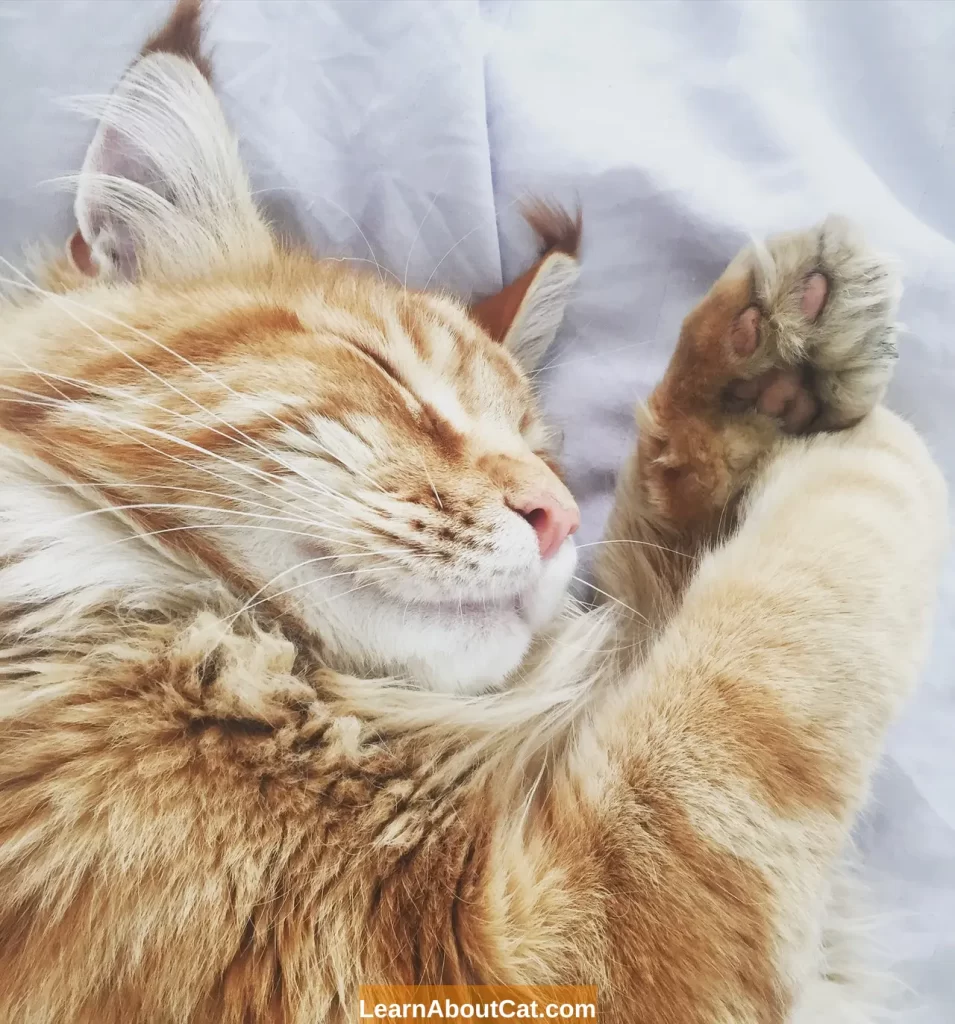
Is it Usual for Cats to Snore?
Almost certainly, especially if your cat has been snoring for a time and you haven’t seen any other signs. You don’t need to be frightened then. Snoring that occurs only on rare occasions is likewise likely to be normal and not an indication of an underlying condition.
Like humans, cats maintain consistent sleeping patterns. If you’ve ever noticed your cat utterly calm and lost in her slumber, she’s probably in her R.E.M. phase. This is when cats adopt the most unusual postures and snore the loudest. He will make weird noises during this period.
How Can a Cat’s Snoring be Prevented?
The following ways are explained by which you can prevent your cat from snoring while sleeping.

1. Replace the Litter
Asthmatic and allergic cats are more susceptible to allergies, and the litter you’re using might be increasing their symptoms. Fortunately, numerous manufacturers provide litter for cats that have asthma or allergies. These will be devoid of dust, scent, and chemicals.
2. Food Tangles
To reduce obesity, you can use food puzzles. This enables them to eat patiently. Food-dispensing toys for cats are available to buy, or you may construct your own.
3. Purchase a Humidifier
Everyone in the home suffers from dry air. Purchase a branded humidifier and use them especially when the weather is cold.
4. Annual Veterinary Examinations
To keep your cat happy and healthy, regular wellness examinations are required. Because cats are both prey and predator animals, they are superb at disguising discomfort and illness, and regular vet visits may help you uncover whether your cat is overweight or has another medical condition sooner. Treatment is always preferable to prevention.
5. Exercise
As though it were prey, manipulate a wand toy, such as a feather wand or a mouse on a string. Like people, not all cats enjoy the same things, try out a few different beautiful toys to see which one your cat loves. They can do the exercise using some tricky toys or any other small balls.
6. Maintain a Healthy Weight
You should help your cat maintain a healthy weight since obesity might cause snoring. This is also good for their health. To help you lose weight quickly, your veterinarian may suggest a diet and activity regimen. Food puzzles, in addition to exercise and diet, are a fantastic way to help your overweight cat lose weight.
What Are Some Ways to Block the Sound of Snores?
- Make use of noise-cancelling headphones. If you want to keep your cat in your room, noise-cancelling headphones may help you do so.
- If everything else fails and your cat’s snoring keeps you and your spouse awake at night, you might want to consider removing your cat from your bedroom. This almost certainly implies keeping your door shut.
- Use earplugs. If everything else fails, soft earplugs are available at any home improvement store.
- Take advantage of a white noise generator. This type of noise will not keep you awake, but it will help to mask your cat’s snoring.
Frequently Asked Questions
The Bottom Line on Is It Normal for My Cat to Snore
Cats do not snore as much as dogs. Is snoring a common occurrence for my cat? Is snoring typically for my cat? Yes, without question. This isn’t always the case, and snoring might indicate something else entirely.
Respiratory infections, asthma, allergies, obstruction, obesity, nasal shape, illness, dry air, and sleeping position are some of the most common reasons for snoring in cats.
Who is Isabella?
My name is Isabella, and I am a dedicated and knowledgeable cat enthusiast. With years of experience caring for cats and a deep love for felines, I made a mission to help other cat lovers navigate the challenges of cat ownership.

